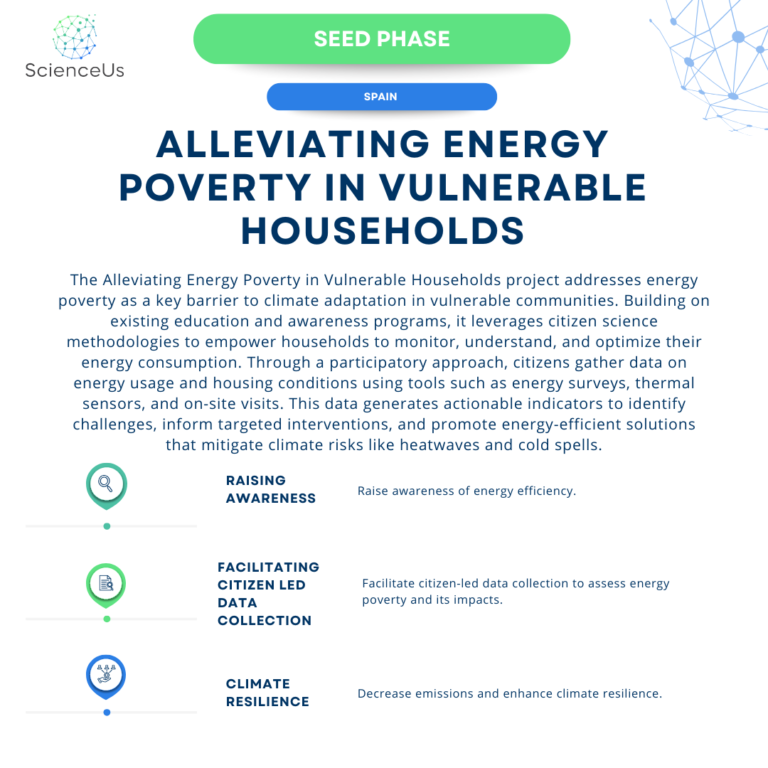Tackling energy poverty: A path to climate resilience
Climate change is not only an environmental crisis but also a social one. Among its many consequences, energy poverty stands out as a silent yet pressing challenge, disproportionately affecting vulnerable households. Rising energy costs, heatwaves, and extreme cold put additional pressure on families already struggling to make ends meet. In Spain, where thousands of households are at risk of energy vulnerability, the Spanish Red Cross (SpRC) has been leading efforts to turn the tide.
Since 2017, the Spanish Red Cross has been implementing an ambitious program across more than 52 cities in Spain to reduce household vulnerability to climate change through a comprehensive and community-centered approach. The program combines energy efficiency measures, renewable energy solutions, and citizen empowerment activities. Its mission is clear: ensure that no one is left behind in the transition to a greener, more sustainable future.
Citizen Science as a driver of change
What makes this initiative stand out is its integration of citizen science. Households are not just passive beneficiaries but active participants in the process of identifying problems and implementing solutions. Citizens gather data about their homes and energy consumption using tools such as thermal sensors, energy surveys, and on-site visits.
This participatory approach generates actionable insights into energy poverty and its impacts, which are then used to propose affordable, scalable solutions. The collected data does more than improve living conditions for participating households—it contributes to the broader understanding of energy poverty at a national and European level.
From awareness to empowerment
Beyond technical solutions, education and awareness play a central role in this project. Workshops help households understand the risks posed by climate change and teach practical measures to save energy and increase comfort. These small yet powerful steps not only reduce bills and CO₂ emissions but also improve health, thermal comfort, and autonomy.
In collaboration with volunteers, local communities, authorities, and energy providers, the Spanish Red Cross fosters a people-centered, locally driven energy transition. By embedding social action into climate adaptation, the project ensures solutions are long-lasting and relevant to those most in need.
Building resilient communities
The benefits of the initiative go beyond immediate household relief. By improving housing conditions, enabling retrofitting, and fostering behavioral change, the project strengthens the resilience of communities against climate risks such as heatwaves and cold spells. It also lays the groundwork for future climate policies by showcasing practical, replicable strategies that bridge the gap between environmental goals and social justice.
A European dimension: From local action to shared impact
The benefits of the initiative go beyond immediate household relief. By improving housing conditions, enabling retrofitting, and fostering behavioral change, the project strengthens the resilience of communities against climate risks such as heatwaves and cold spells. It also lays the groundwork for future climate policies by showcasing practical, replicable strategies that bridge the gap between environmental goals and social justice.

“Funded by the European Union. Views and opinions expressed are however those of the author(s) only and do not necessarily reflect those of the European Union or European Research Executive Agency. Neither the European Union nor the granting authority can be held responsible for them.”

